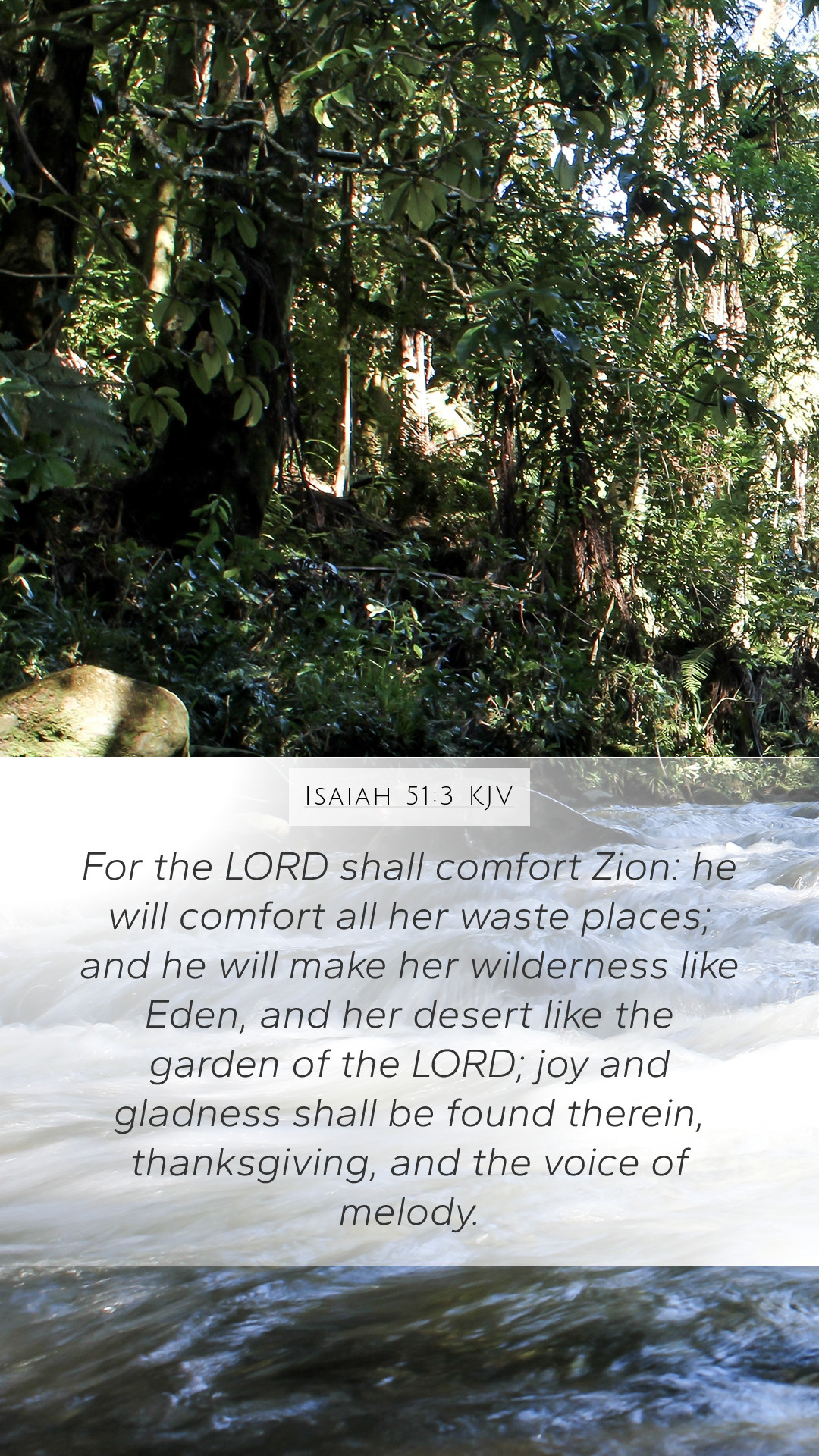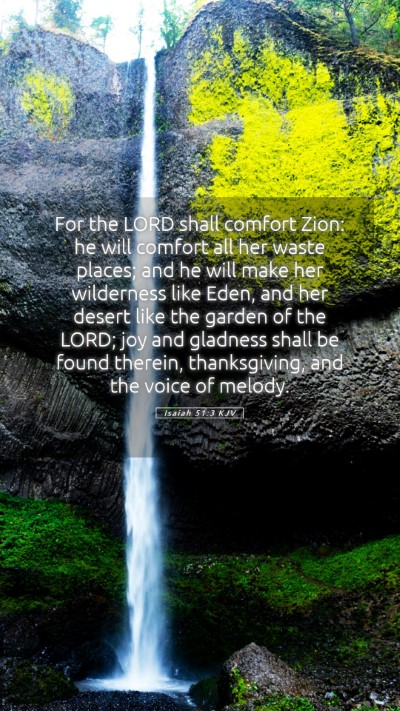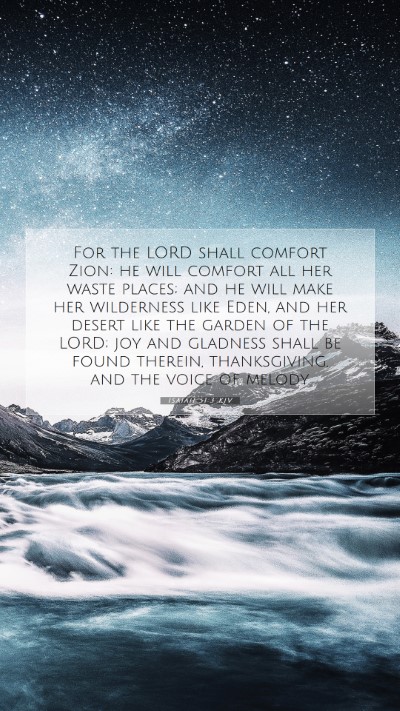Understanding Isaiah 51:3
Isaiah 51:3 states: "For the Lord will comfort Zion; He will comfort all her waste places, and He will make her wilderness like Eden, and her desert like the garden of the Lord; joy and gladness will be found in it, thanksgiving and the voice of melody."
Summary of Meaning
This verse conveys powerful themes of comfort, restoration, and hope. God promises to restore Zion, symbolizing the people of Israel, transforming desolation into abundance and joy.
Bible Verse Meanings
- Comfort to God’s People: The primary message of comfort signifies God’s care and concern for His people. He reassures them during a time of hardship.
- Transformation: The imagery of turning a wasteland into a garden represents spiritual renewal and God’s power in changing dire circumstances.
- Joy and Gladness: The promise of joy and gladness emphasizes the fruitful outcomes of God's intervention, suggesting that worship and praise will return to the land.
Bible Verse Interpretations
Commentators such as Matthew Henry highlight the contrast between the waste places and the lush gardens. This transition indicates not merely physical restoration but also spiritual revival. Albert Barnes notes that the metaphor of Eden evokes a return to paradise, suggesting God’s ability to regenerate even the most hopeless situations.
In-depth Bible Verse Analysis
Adam Clarke points out that God's promise is not just for the physical land but also for the community's spiritual well-being. This serves as an assurance that those who feel desolate due to sin or calamity can find renewal through divine intervention.
Historical Context
The context of Isaiah's prophecy unfolds during a period of exile for the Israelites, signifying that this message of hope was particularly poignant. It served to remind the people of God’s everlasting covenant and the future glory they could expect.
Application of the Verse to Daily Life
In modern times, believers can reflect on this promise of comfort to find solace in their trials. Just as Zion was reassured of restoration, individuals today can trust in God to renew their lives, regardless of the wilderness they may face.
Additional Insights from Commentaries
- Matthew Henry: Emphasizes the hope and assurance found within God's promises, highlighting His longstanding commitment to His people.
- Albert Barnes: Discusses the spiritual significance of Eden as a restoration of peace and harmony in life after hardship.
- Adam Clarke: Focuses on the need for spiritual renewal alongside physical restoration, encouraging a deeper understanding of God's transformative power.
Cross References
- Isaiah 40:1-2: A call for comfort to God's people, reiterating divine forgiveness and restoration.
- Isaiah 61:3: Promises to provide comfort and joy, describing the ministry of restoration.
- Ezekiel 36:35: Speaking of desolated places becoming "like the garden of Eden" again, echoing the theme of renewal.
Conclusion
Isaiah 51:3 serves as a profound reminder of God’s ability to bring comfort and renewal. Through understanding Scripture in the light of historical context, biblical exegesis, and verse commentary, believers can deeply appreciate the significance of God's promises in both ancient and contemporary contexts.
For Further Study
For those engaged in bible study groups or seeking bible study resources, this verse offers a rich foundation for exploring themes of redemption and hope found throughout the Scriptures. Utilizing bible study tools and bible study guides, individuals can delve deeper into its meaning and relevance today.


